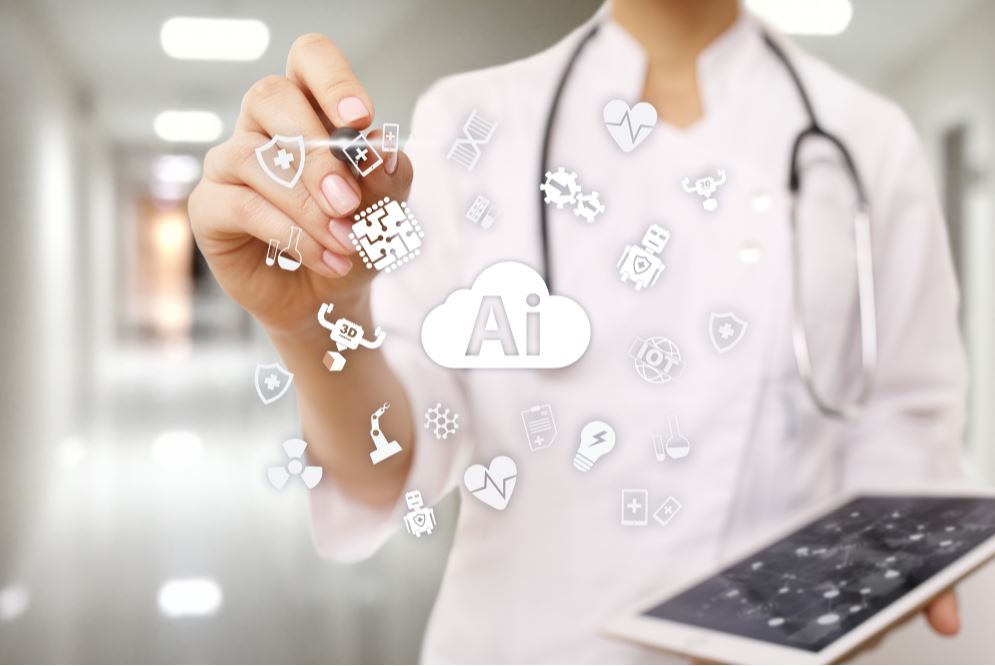
(AI) has emerged as a transformative force in various industries, and healthcare is no exception. The integration of AI technologies in healthcare has the potential to revolutionize patient care, improve diagnosis and treatment, and enhance operational efficiency. From assisting in medical research to supporting clinical decision-making, AI is reshaping the landscape of healthcare. In this article, we will explore the role of artificial intelligence in healthcare and how it is transforming the industry. We will also highlight the importance of partnering with a reputable healthcare branding agency, to navigate the complexities of AI implementation in healthcare and maximize its benefits.
1. Precision Medicine and Personalized Treatment
AI enables the analysis of vast amounts of patient data, such as medical records, genetic information, and lifestyle factors, to identify patterns and make predictions. This empowers healthcare professionals to develop personalized treatment plans tailored to individual patients. AI algorithms can analyze data to predict disease progression, identify potential risks, and recommend personalized interventions, leading to more accurate diagnoses and optimized treatment outcomes.
2. Medical Imaging and Diagnostics
AI algorithms can process and analyze medical images, such as X-rays, CT scans, and MRIs, to assist healthcare professionals in detecting abnormalities and making accurate diagnoses. Machine learning models trained on large datasets can identify patterns and indicators of diseases, enabling early detection and intervention. AI-powered diagnostic tools have the potential to enhance the speed and accuracy of diagnoses, reducing human error and improving patient outcomes.
3. Virtual Assistants and Chatbots
AI-powered virtual assistants and chatbots are becoming increasingly prevalent in healthcare. These tools can provide personalized and timely support to patients, answering their questions, providing basic medical advice, and scheduling appointments. Virtual assistants can triage patients, directing them to the appropriate level of care based on their symptoms, and reducing the burden on healthcare providers. Chatbots enable convenient and accessible communication, enhancing patient engagement and satisfaction.
4. Drug Discovery and Development
AI is transforming the process of drug discovery and development, expediting the identification of potential drug candidates and accelerating the research process. Machine learning algorithms can analyze vast amounts of biomedical data, including genetic information and scientific literature, to identify new drug targets, predict drug efficacy, and optimize treatment protocols. AI-powered systems can help pharmaceutical companies streamline their research efforts, reducing costs and improving the efficiency of bringing new treatments to market.
5. Operational Efficiency and Healthcare Management
AI technologies can optimize operational processes within healthcare organizations, leading to improved efficiency and cost savings. AI-powered systems can automate administrative tasks, such as appointment scheduling, billing, and documentation, freeing up healthcare professionals’ time to focus on patient care. AI can also analyze data to optimize resource allocation, predict patient flow, and enhance supply chain management, ensuring that healthcare organizations operate effectively and deliver high-quality care.
Partnering with a Reputable Healthcare Marketing Agency
Implementing AI technologies in healthcare requires expertise and strategic guidance. Trusted healthcare marketing business intelligence agency, offers specialized services to navigate the complexities of AI implementation in healthcare. They have a deep understanding of healthcare regulations, data privacy, and security considerations, ensuring that AI solutions are implemented ethically and in compliance with industry standards.
A healthcare marketing agency can assist healthcare organizations in developing AI strategies, identifying suitable AI solutions, and integrating them seamlessly into existing systems. They can help organizations effectively communicate the benefits of AI to patients and stakeholders, ensuring transparency and building trust. Additionally, they can support healthcare organizations in leveraging AI technologies to improve patient engagement, enhance marketing strategies, and drive operational efficiencies.
Conclusion
In conclusion, artificial intelligence is playing a transformative role in healthcare, revolutionizing patient care, diagnosis, treatment, and operational efficiency. AI enables personalized treatment plans, improves medical imaging and diagnostics, facilitates virtual assistants and chatbots, accelerates drug discovery and development, and enhances operational efficiency in healthcare organizations. The implementation of AI technologies requires strategic guidance and expertise, which can be provided by reputable healthcare marketing agencies.
By leveraging AI in healthcare, healthcare organizations can unlock numerous benefits. Patients can receive more personalized and accurate diagnoses, leading to better treatment outcomes. Healthcare professionals can access AI-powered tools that augment their decision-making processes and streamline administrative tasks, allowing them to focus more on patient care. Pharmaceutical companies can accelerate drug discovery, potentially bringing life-saving treatments to market faster. Furthermore, AI-driven operational optimizations can lead to cost savings and improved resource allocation within healthcare organizations.
However, it is essential to approach AI implementation with care and ethical considerations. Data privacy, security, and regulatory compliance should be prioritized to protect patient information and maintain trust. Healthcare marketing agencies can provide valuable guidance in navigating these complexities and ensuring that AI solutions are implemented responsibly and in accordance with industry standards.
In conclusion, the integration of artificial intelligence in healthcare is transforming the industry, revolutionizing patient care, diagnosis, treatment, and operational efficiency. By embracing the power of AI, healthcare organizations can usher in a new era of improved patient outcomes, optimized workflows, and enhanced healthcare experiences.
Interesting Related Article: “The Importance of Healthcare Software Development“

